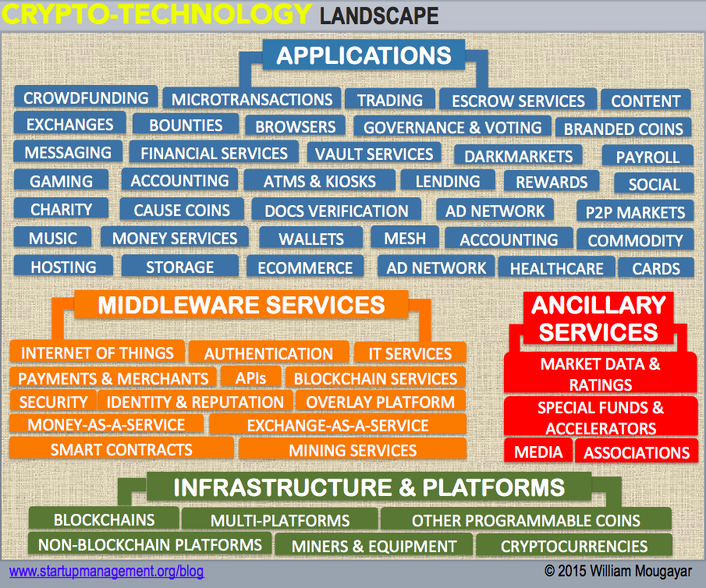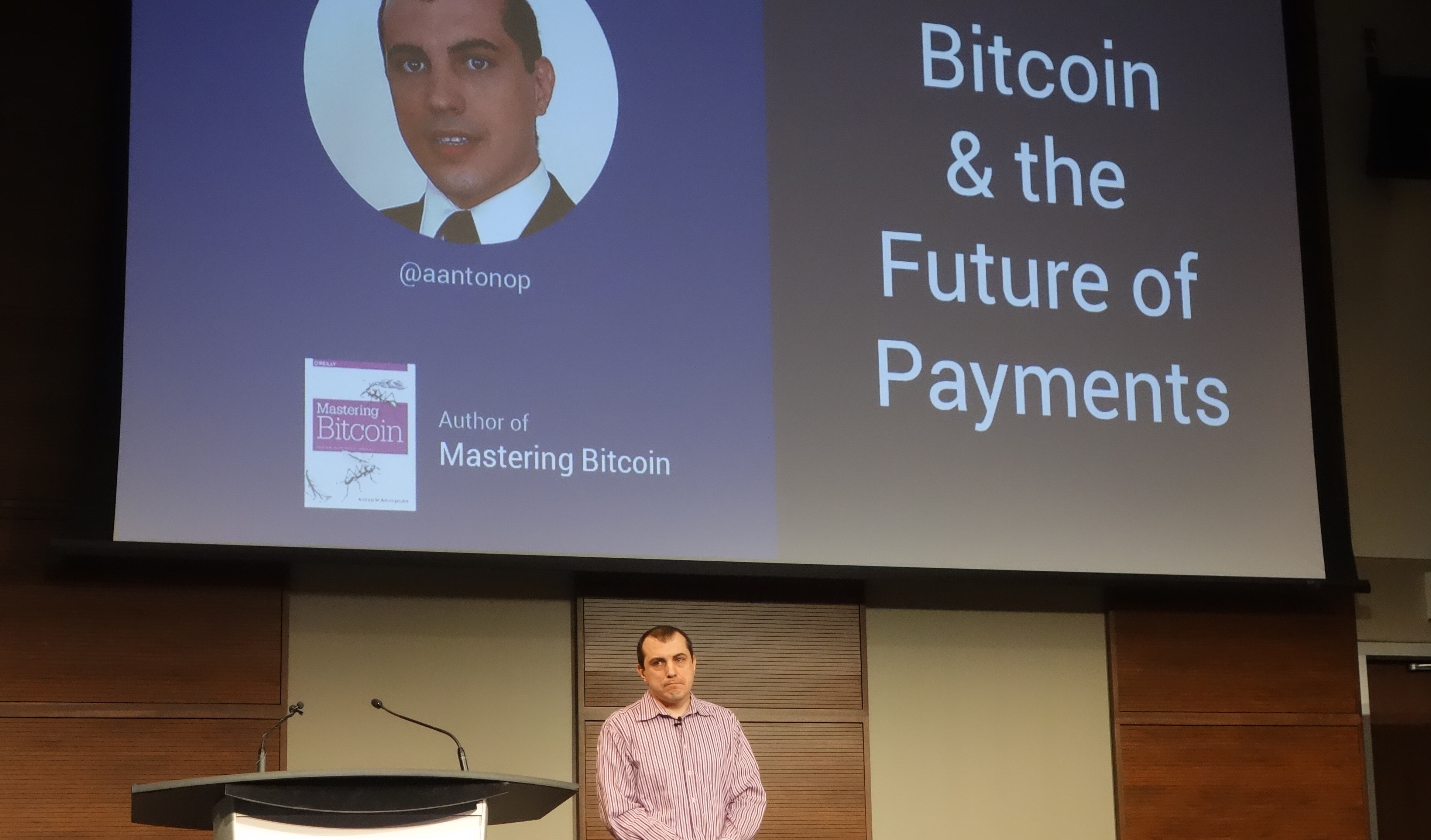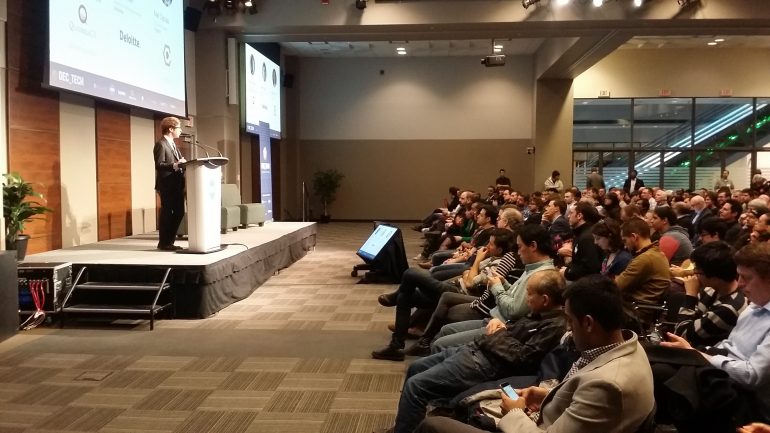Hosted in the MaRS Discovery District this week, DEC_TECH was the first financial technology event put on by the innovation hub since it launched its FinTech cluster in February. The event was organized in conjunction with Decentral Toronto, which should come as no surprise, as they have been brought into MaRS as a cluster partner. Speaking with cluster lead Adam Nanjee last month, he indicated a desire to “educate the financial institutions about cryptocurrency and its true power.”
The event certainly featured a willing audience, as the room was packed with a mix of Bitcoin evangelists, FinTech developers, and finance workers (including a few Canadian bank representatives lurking in the back). A new outgrowth of the Toronto Bitcoin Meetup group, DEC_TECH was designed to represent such a broad audience of interests. “DEC_TECH will open doors to the crypto space for Toronto,” said Decentral CEO and event host Anthony Di Iorio.

The expanded focus, however, initially did more to explain the nascency of cryptocurrency than its power. Tasked with describing to the audience just what Bitcoin is, Cryptiv CEO Mat Cybula struggled to quantify the cryptocurrency, admitting that it is “a lot of things at the same time.” Probably the closest Cybula got was calling Bitcoin a “huge social experiment.”
That social experiment is playing out in real time, and governments are struggling to keep up. Amber Scott, founder of Outlier Services, was tasked with explaining the Canadian government’s current regulatory stance on Bitcoin and cryptocurrency. Scott admitted that “we haven’t made it terribly onerous,” but also added that “it’s not just a regulation question.” Drawing a distinction between regulation and compliance later during a panel segment, Scott indicated that there’s no current mechanism in place to ensure that cryptocurrency providers are following the policies posted.
“If I’m letting someone else hold my money for me, they’re a fiduciary,” she said. “If they’re acting as a fiduciary, if they’re holding value on your behalf, what are they doing to be secure?”
@tron – It can be, but we're working to make it easier. There's guidance and list of vetted respondents at www.outliercanada/blog
— Amber D. Scott (@OutlierCanada) March 17, 2015
The current need for personal responsibility was reinforced by KryptoKit’s Jeff Coleman, who recommended “choosing a wallet where you’re personally in control of your Bitcoins” to the audience, lest they be saddled with a PayPal account by another name. Coleman also noted the tension between personal and institutional financial control, saying “I would assume consumers don’t want to be their own bank. But they don’t want their bank to be their bank either. We should let the math be the bank.”
The tension highlighted by Coleman was a main point of focus for Andreas Antonopoulos, Bitcoin evangelist, author, and keynote speaker for the event. Energetic and well-spoken, Antonopoulos was able to grab hold of all the divergent cryptocurrency narratives and place them in firm historical, technological, and economic context.
Noting that the mainstream perception of Bitcoin is that of a tool for buying drugs on the Internet, Antonopoulos organized his talk around the threat financial institutions face by a decentralized currency. The current perception of Bitcoin, Antonopoulos argued, was fuelled by a propaganda campaign based on “the desire to dismiss change, especially if that change is strange or scary.”
Antonopoulos also claimed that the current financial response to cryptocurrency has a historical parallel with the music industry and file sharing battle during the late 90s. The financial response to Bitcoin, he said, could be viewed in the same five stages of grief experienced by EMI and Sony in response to Napster: Denial, Anger, Bargaining, Depression, and Acceptance.

Antonopoulos gave examples of movement towards the bargaining stage, as banks establish blockchain research groups. “The first thing it reveals is that they really don’t understand Bitcoin,” he said. “Blockchain on its own is not revolutionary, because the blockchain is a ledger. How old are ledgers? Thousands of years old!”
The real meat, Antonopoulos argued, lies in Bitcoin’s decentralized nature. Banks looking for a centralized cryptocurrency, he said, are hoping for “a blockchain that looks a lot like Visa.”
“The financial industry is not going into this fight ready for this fight,” Antonopoulos continued. Over-leveraging and a generation of young people who believe that banks are “responsible for stealing their jobs” will lead to a level of disintermediation greater than that experienced by the music industry. “What is disintermediation? Disintermediation is when an industry you painstakingly built over hundreds of years becomes obsolete overnight. You can’t do ‘a bit of blockchain’.”
Despite the bold talk, the Bitcoin evangelist was clear on the limits of the cryptocurrency. “Anyone who thinks that bitcoin will become the one world currency is asinine and doesn’t know anything about economics or human experience,” he said. Instead, Antonopoulos argued that Bitcoin would find success in its own niches, specifically in parts of the world where there are no banks.
Antonopoulos also admitted to the challenges still waiting to be overcome for greater adoption, both technical and practical. “Bitcoin is different enough that the traditional guarantees banks offer are difficult to apply,” he said. But the evangelist remained bullish on the opportunities. “Security is one of the main aspects of cryptocurrency where half the people in the room will see it as a challenge, and half will see it as an opportunity. They’re the entrepreneurs.”
Related: Andreas Antonopoulos doesn’t know what happens next

